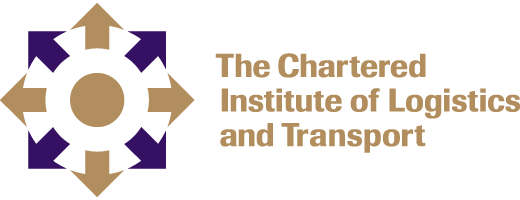About the course:
Study time commitment: Part Time
Learning style: Flexible Learning
(CILT) Certificate in Logistics (CD-ROM) Flexible Learning Programme
Logistics is a critical driver of organisational improvement and competitive advantage.
Logistics is now firmly established as a key issue on most corporate agendas in today’s global market place. It is having a revolutionary impact on industry as management becomes more aware of its’ potential and is arguably the most vital task facing all organisations.
Logistics is increasingly developing into a factor that shapes a company’s success.
The contemporary logistics system includes various methods and technologies for the effective utilisation of key resources to achieve cost effectiveness and superior customer value.
The next major challenge is to successfully implement the many ideas already developed by logistics management to achieve much greater supply chain efficiency.
Organisations that fail to promote the development of logistics skills are likely to suffer as their employees struggle to keep pace with changes in the business.
The urgent need for qualified Logistics Professionals.
For business success, remedy organisations urgently require knowledgeable and highly trained logistics professionals. However companies are experiencing a skills shortage when attempting to recruit logistics staff. In a recent survey among Logistics managers at 15 of Irelands leading electronic companies;
54% of those surveyed highlighted the shortage of skilled qualified logisticians as the single most problem facing the manufacturing, ed distribution and logistics industries.
The rapid pace of change within business, has resulted in a shortage of people with the necessary skills in logistics operations. Such is the pace of change in the world at large that logistics managers and their staff find that their skills are outdated so quickly that they need to be constantly updating their competencies.
The Market gap – there is a shortage of quality Logistics training courses.
Many Companies wishing to up-skill their own people are finding that there is a glaring lack of structured Logistics training available.
- In particular, Certificate and Diploma courses
- Courses accredited by a professional body in the Logistics field
- Courses designed specifically for people employed in the Logistics disciplines
- Courses designed to improve the individual’s and the organisation’s performance
The Institute of Logistics and Transport is dedicated to bridging this competency gap and to raising the competency level among Logistics personnel. It is in response to this competency gap, that this course was developed
Flexible Learning
In the modern world, everybody has various pressures and time commitments. The demands placed on people at work, from family, and from other recreational and voluntary pursuits have precipitated the requirement for flexible learning. This course can be taken at your own pace and in your own time.
Professionally Accredited
The course is accredited by the Chartered Institute of Logistics and Transport in Ireland, the key professional body for the Logistics and Transport disciplines. A Certificate in Logistics is awarded by the Institute to the successful participants. Upon successful completion of the programme, applicants will also receive one years free Affiliate membership of The Chartered Institute of Logistics & Transport Ireland.
Interactive Instruction
The course is delivered on interactive multimedia CD-ROM. The user is required to become an active learner engaging with the material. This is likely to provide the user with a more enjoyable learning environment and faster learning.
The Course Content as structured on the CD-ROM
Lesson 1. Introduction to logistics Lesson 2. Transport Lesson 3. Forecasting logistics requirements Lesson 4. Inventory policy decisions Lesson 5. Production scheduling decisions Lesson 6. Procurement decisions Lesson 7. Outsourced supply chain Lesson 8. Distribution management Lesson 9. Logistics customer service
Learning Objectives
On completion of the course, the users will be able to do the following:
- Define all the logistics and transport terms that are used in the day-to-day operation of logistics and transport processes.
- Explain the purpose of logistics within the organisation.
- Demonstrate knowledge and understanding of the importance of logistics to the success of the organisation.
- Illustrate the interaction and interdependence of each individual logistics function.
- Propose ways in which the logistics process could be improved.
- Assess the logistics strategy of the organisation.
- Describe the transport function and its importance to logistics.
The Assessment and Examination Process
The course has two examinable components:
- Participants must satisfactorily complete 3 assessments during the course.
- On successful completion of assignments the participant are required to sit a three hour written examination.
How to apply
